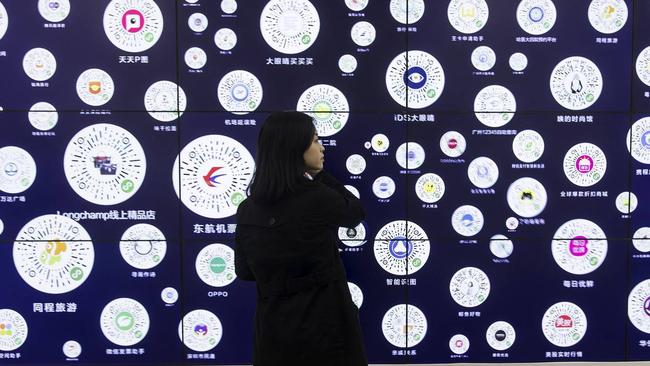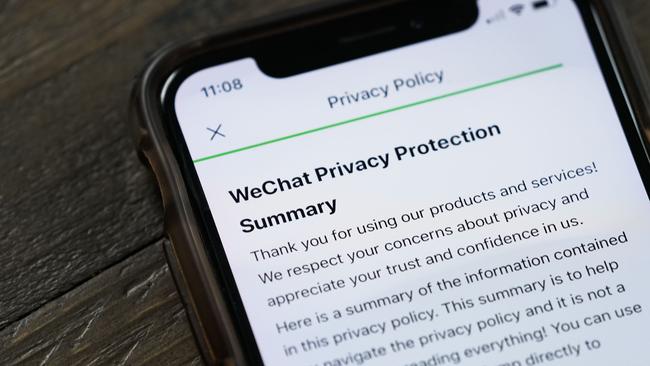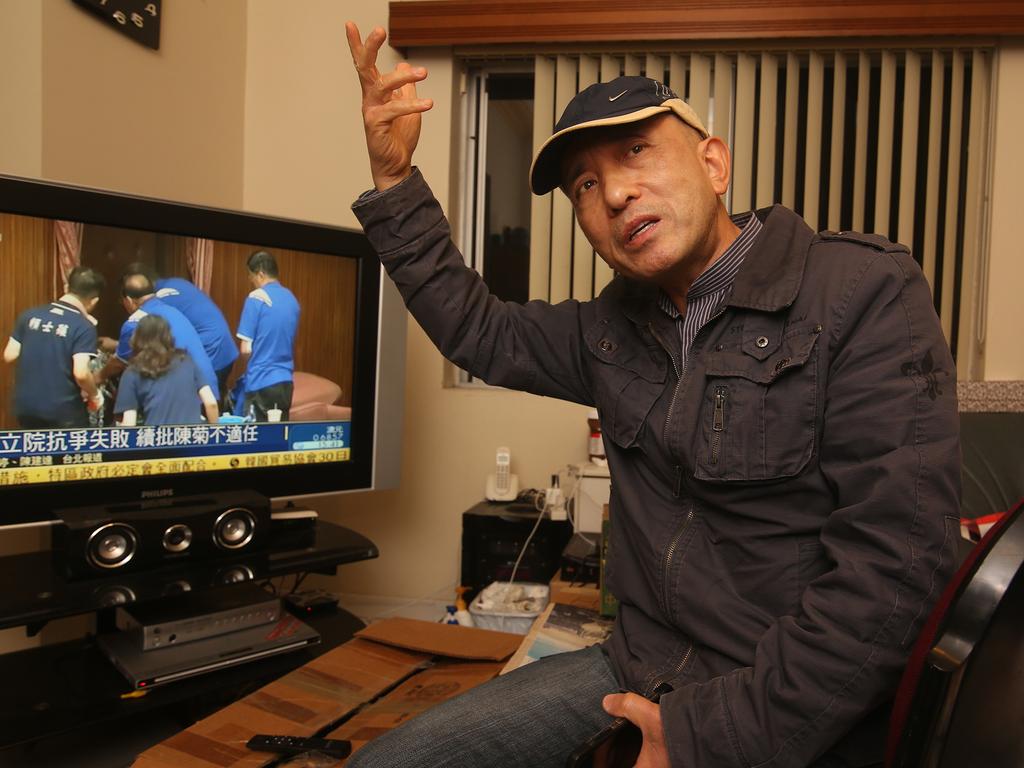Why the WeChat ban is a major event in the US-China rupture and how it could hit Australia

It is a far bigger deal than the executive order banning TikTok that was issued on the same day as the WeChat one – August 6 – and is potentially far more damaging to this country than either the banning of Huawei or Trump’s three-year-old trade war with China.
That’s because about a billion Chinese people use WeChat for just about everything, including when they travel. If they can’t use it somewhere, it’s doubtful they’ll go there.
If Australia was obliged, or persuaded, to join the US in banning WeChat, or decided independently to do so, it would likely mean the end of tourism and international students from China, not that there’s much of that going on at the moment thanks to the coronavirus, but everyone hopes these things will eventually come back as lucrative exports and, more importantly, generators of employment.
The indispensable app
WeChat isn’t just a communication device, although it is definitely that – it’s Facebook, Instagram, Twitter and WhatsApp in one – it’s basically integrated into every aspect of most Chinese peoples’ lives. It’s how they pay for their shopping and meals, read newspapers, book flights, hail taxies, access government resources and do business, as well as communicate with each other.
Why is Trump banning WeChat? Because, as he wrote in the executive order: “WeChat automatically captures vast swathes of information from its users. This data collection threatens to allow the Chinese Communist Party access to Americans’ personal and proprietary information.”
In a speech a year ago, the US State Department’s Assistant Secretary for International Security and Non-Proliferation, Christopher Ford, set the stage for this: “Irrespective of their ostensibly private, commercial status, all … firms are subject to a deep and pervasive system of Chinese Communist Party control.”

I downloaded WeChat this week, partly to see what the fuss is about and partly to read the Terms and Conditions and find the smoking gun. The app is obviously very good – no wonder they love it – and the T & Cs are about 10,000 words long, so I skimmed rather than read them, but I did find this sentence: “We do not share your information with any third parties, except … if we are instructed by a court, authority or compelled by law”.
That sort of thing is probably in most apps’ T & C’s, although I’m not sure because like everyone else I don’t read them, but anyway it’s backed up in Chinese law as well, as described by Christopher Ford in that speech last year: “Multiple Chinese laws, in fact, require companies to co-operate unconditionally with the Chinese Communist Party’s security apparatuses in order to “guarantee state security.”
“The National Intelligence Law, for instance, requires all entities in China to co-operate with its intelligence services, and covers both private companies and state-owned enterprises. Analogous provisions exist in China’s National Security Law, Counter-Terrorism Law, and Cybersecurity Law.”
The distrust around this is at the heart of the banning of WeChat and TikTok as well as the ban on Huawei supply 5G equipment, including in Australia, and it’s a key to the whole rupture between America and China, and their spheres of influence.
A widening gap
The separation is getting deeper and more entrenched. The way it’s going it will spread to all aspects of life and rope in all of each country’s allies, including Australia. We’re already roped in, let’s face it, but the long-term costs of that have not yet been fully recognised, or openly discussed.
The world is dividing into two clear and quite separate economic and political zones, like the Iron Curtain that came down after World War Two, except this time it’s focused on the internet, technology and AI.
China will probably have to keep buying Australian iron ore, coal and LNG, although African projects like Simandou will be fast-tracked with Chinese money, but Chinese tourism and education could dry up immediately, especially if we ban WeChat.
Academic research co-operation between Australian and Chinese universities will probably also gradually wither and businesses that are counting on access to the Chinese market, such as the food and vitamin businesses using the daigou channels, are moving into greater risk.
More broadly, companies will no longer be able to count on achieving full global scale; instead, a sphere will have to be chosen – America’s or China’s – and it’s possible given Australia’s clear political alignment that China will be off-limits to our companies.
And even though the China hawks are in the driver’s seat in Washington at the moment with Trump directing traffic, Australia can’t rely on America doing a U-turn if Trump loses in November and President Biden takes over. Most analysts reckon Biden will be softer on China, but not that much: the die has been cast.
A necessary defence
In any case, a lot of the problem lies with China and Xi Jinping, not Trump. As the director for Asia studies at the Council on Foreign Relations, Elizabeth Economy puts it in her new book, The Third Revolution: Xi Jinping and the new Chinese state, “China is an illiberal state seeking leadership in a liberal world order.”
She argues that Beijing has recast itself as a great power, seeking to reclaim its past glory and to create a system of international norms that better serves its more ambitious geostrategic objectives.
So a large part of what’s going on is a necessary defence of liberal democratic values against illiberal Chinese aggression, which has only been sharpened by the arrests in Hong Kong over the past two weeks under the new security law imposed by the Chinese Communist Party.
And it’s not just about a couple of apps, although they do look like Trojan horses.
Alan Kohler is Editor in Chief of Eureka Report




The United States’ decision to ban WeChat next month is the most important escalation yet of the threat to the Australian economy posed by America’s confrontation with China.